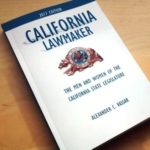Although there had been warning signs that the Top Two Era would be different, for months it seemed like thunder in the distance; something that you probably shouldn’t ignore, but that also isn’t necessarily an immediate concern. Then, like a hundred year storm, it hit and we saw some things that we never expected to see and learned some important lessons;
The Primary and General Elections are Different Elections
It has been common knowledge for years that whoever wins the most votes in the Primary usually wins in November. Sure there are exceptions; sometimes two Democratic candidates would nearly evenly split the 60% DEM registration in a district, giving the sole Republican the remaining 40% and a false appearance of a strong lead. In 2012, we saw six candidates who won more than 50% in the June Primary go on to lose in November. They included incumbents Chris Norby (who received 58.8% in June), Mary Bono Mack (58.1%), and Dan Lungren (52.7%). It’s a reminder that in this new era, every election is unique.
There are no Safe Seats for Republicans
Another important lesson for the Republicans was that, in California, there really are no entirely “safe” seats. Although voter registration and the powers of incumbency can go a long way towards helping a candidate win reelection, there are no sure things in the Top Two Era.
Being a Former Legislator Does Not Guarantee You a Return Ticket
Former legislators have track records. This used to be a benefit, because donors could look at votes and legislation and figure out who their friends were. But after the defeat of Rico Oller, Richard Alarcon, and Joe Baca Jr., it’s also obvious that people knowing who you are can also be a liability.
Being the Child of a Legislator Can Really Help (Unless You’re Joe Baca, Jr.)
As George Miller, Sam Farr, Lucille Roybal-Allard, Duncan D. Hunter, Steve Knight, Kevin Mullin, Chris Holden, Brian Nestande, Ian Calderon and Bill Berryhill can tell you, it can be really helpful to have a father who was a legislator. John Campbell would probably add that being the great-grandson of a state legislator isn’t half bad either.
Finally, I also asked some of my friends to contribute their own “lessons learned” from 2012.
Some focused on the historical trends now at work;
“It is interesting to note how the political pendulum swings over time. The two-thirds majority held by Democrats in 1883 in both houses was followed in the next session by a two-thirds majority of Republicans in the Assembly and an evenly divided Senate.”
and
“As a historian, I find it curious that in 1910 the People of the State of California threw out a semi-corrupt, unpopular, inefficient Legislature beholden to special interests and put in place place three powerful devices to prevent a return to the status quo and protect the people; the initiative, the referendum, and the recall. The Progressives apparently never counted on the People preferring a semi-corrupt, unpopular, inefficient Legislature beholden to special interests.”
Others focused on the new rules of election strategy;
“(1) Hoping for low voter turnout, especially amongst new registered voters, is not a real strategy; (2) Republicans cannot continue to ignore the importance of voter registration and changing demographics; (3) Adapt and integrate or die.”
and
“Jerry Brown is a really smart guy. A big check can hurt more than it helps. It’s hard to pick up a seat in the general election if your candidate loses the primary. It’s probably not a good idea to tell a bunch of people to self-deport.”
Any thoughts?

Leave a Reply
You must be logged in to post a comment.